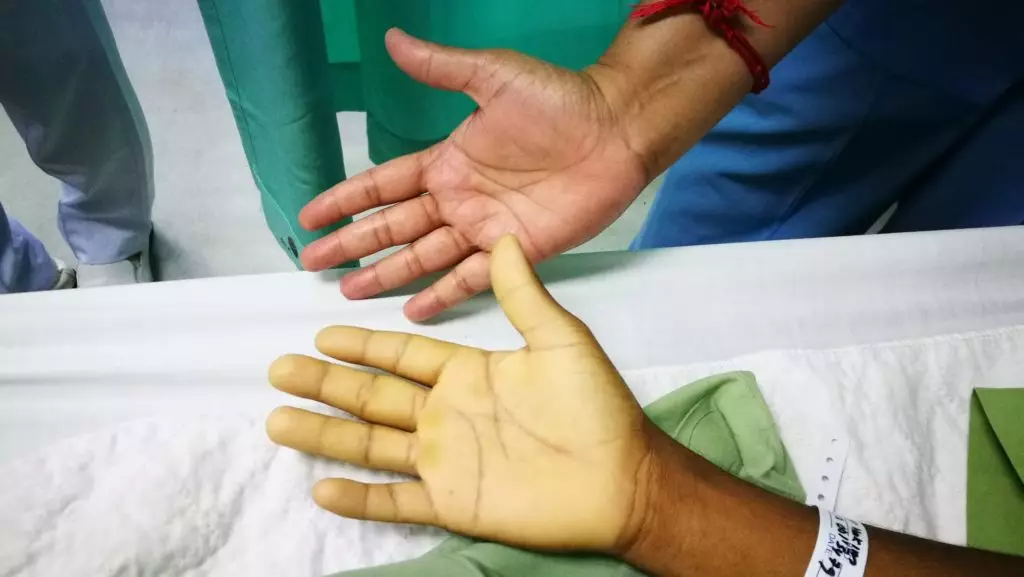A report from the Bill & Melinda Gates Foundation reveals that fortifying bouillon cubes with iron, folic acid, zinc, and vitamin B12 in Nigeria could help prevent up to 16.6 million cases of anaemia and save 11,000 children from neural tube defect-related deaths by 2050.
The foundation’s eighth annual Goalkeepers report, released on Tuesday, stresses that swift action could significantly improve health outcomes and promote economic growth.
New modelling in the report also indicates that climate change will worsen hunger, potentially affecting an additional 40 million children by 2050.
The Bill & Melinda Gates Foundation urges world leaders to boost global health investments, focusing on child nutrition and health in the face of the growing climate crisis.
Entitled “A Race to Nourish a Warming World,” the report warns that, without urgent global action, climate change could lead to 40 million more children suffering from stunting and 28 million more experiencing wasting between 2024 and 2050. Addressing these issues now could mitigate such impacts, build resilience against climate change, and fuel vital economic growth.

In 2023, the World Health Organisation estimated that 148 million children suffer from stunting, while 45 million are affected by wasting, both of which severely impact physical and mental development.
“These are the most severe and irreversible forms of chronic and acute malnutrition.”
Despite growing global challenges, foreign aid to Africa has dwindled. In 2010, 40% of foreign aid went to African countries, but that figure has since dropped to 25%—the lowest in 20 years—despite the fact that over half of all child deaths occur in sub-Saharan Africa.
This trend puts millions of children at risk of preventable diseases and undermines progress made in global health across Africa between 2000 and 2020.
“Today, the world is facing more challenges than ever—rising inflation, mounting debt, new wars. Unfortunately, aid isn’t keeping pace with these needs, especially in the places that need it most,” writes Bill Gates, co-chair of the Bill & Melinda Gates Foundation.
According to Gates, malnutrition is now “the world’s worst child health crisis,” worsened by the impacts of climate change. He calls for sustained global health funding and immediate action to fight rising child malnutrition, endorsing the Child Nutrition Fund, a new initiative that aims to coordinate donor financing for nutrition. Gates also urges governments to fully support established institutions that have saved millions of lives, including Gavi, the Vaccine Alliance, and the Global Fund to Fight AIDS, Tuberculosis, and Malaria, both of which will conduct funding replenishments in 2025.
“If we do these three things, we won’t just save millions of lives—we’ll show that humanity can still overcome its biggest challenges,” Gates adds.
The report also highlights the economic toll of malnutrition, which costs the global economy an estimated $3 trillion annually due to reduced productivity. In low-income countries, undernutrition can result in economic losses ranging from 3% to 16% of GDP—equivalent to a prolonged global recession.
Proven tools are already available to tackle malnutrition and build resilience to climate change, according to Gates. These include:
- New agricultural technologies that can increase milk production by up to threefold, potentially preventing millions of cases of child stunting by 2050.
- Scaling up fortification of pantry staples like salt and bouillon cubes, which could reduce anaemia and prevent neural tube defect-related deaths.
- In Ethiopia, a new process to fortify salt with iodine and folic acid could reduce anaemia by 4% and eliminate up to 75% of deaths and stillbirths due to neural tube defects.
- Providing high-quality prenatal vitamins could save nearly half a million lives and improve birth outcomes for 25 million babies by 2040.
The report also highlights promising research into the microbiome, showing that better gut health can help children absorb nutrients, strengthen immune systems, and grow properly. This research could transform approaches to both malnutrition and overnutrition.
The report features essays from farmers and experts confronting the malnutrition crisis. For instance, Sushama Das, a dairy farmer in Odisha, India, shares how the Livestock Enhancement and Advancement Programme helped her family’s income grow fivefold. Similarly, Coletta Kemboi, a dairy farmer in Kenya, explains how training with MoreMilk improved milk quality and boosted her family’s earnings.
Ladidi Bako-Aiyegbusi, a leader in Nigeria’s bouillon cube fortification efforts, notes the essential nutrients young children need to grow and thrive. Rwanda’s health minister, Dr. Sabin Nsanzimana, emphasises the life-saving potential of prenatal vitamins, with more than 50,000 women benefiting from a program in districts with high rates of stunted growth.
UNICEF’s Director of Child Nutrition, Dr. Víctor Aguayo, describes the Child Nutrition Fund as a potential game-changer, capable of addressing the child malnutrition crisis and reshaping global philanthropy for maternal and child nutrition.


